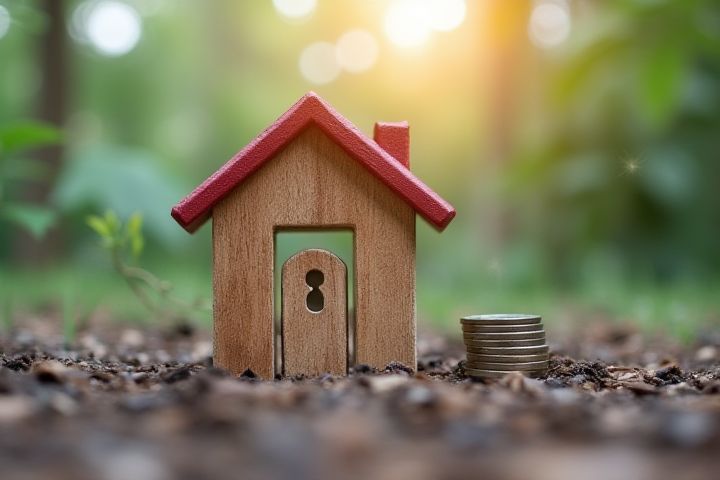
Buying a house during a recession can present unique opportunities and challenges. Housing prices typically drop due to decreased demand, possibly allowing you to acquire a property at a lower cost compared to a stable market. Mortgage rates may also become favorable, providing potential savings on long-term payments. However, it's crucial to evaluate your financial stability, as job security and income can fluctuate during economic downturns. Understanding local market trends and consulting real estate professionals will enhance your decision-making process, ensuring you make an informed investment.
Should You Buy A House In A Recession
Lower interest rates
Buying a house during a recession can be advantageous due to lower interest rates, which typically decrease as the economy slows down. Lower borrowing costs can make homeownership more affordable, allowing you to save money on monthly mortgage payments and overall loan expenses. As housing prices may also decline during a recession, you have the opportunity to secure a property at a potentially lower market value. Evaluate your financial stability and long-term goals to ensure that investing in real estate aligns with your overall strategy during economic downturns.
Buyer’s market advantages
In a recession, buying a house can be advantageous due to the emergence of a buyer's market, where home prices typically decrease due to increased inventory and lower competition. This environment allows you to negotiate better terms, potentially securing favorable financing options and lower interest rates. Additionally, you may have the opportunity to explore homes that were previously out of reach, providing a wider selection that meets your preferences. Investing during a recession can lead to significant long-term equity gains as the housing market recovers, making it a smart strategy for your financial future.
Price negotiation potential
In a recession, housing prices often decline by an average of 10-20%, presenting a strategic opportunity for buyers. Negotiating the final purchase price can yield significant savings, sometimes allowing you to secure a deal below appraised value. In addition, motivated sellers may be more willing to accept lower offers due to financial pressures, increasing your bargaining power. Prioritizing price negotiation potential can lead to acquiring a home that meets your needs while maximizing your investment during uncertain economic times.
Long-term investment
Buying a house during a recession can offer significant long-term investment benefits, particularly as home prices often decrease. Historical data indicates that purchasing real estate during economic downturns can yield up to 30% higher appreciation over the following decade compared to buying in a strong market. With interest rates typically lower during recessions, your monthly mortgage payments could also be more manageable, enhancing cash flow. You may find that investing now positions you strategically for wealth accumulation as the economy stabilizes and property values rebound.
Risk of value depreciation
Buying a house during a recession can expose you to the risk of value depreciation, as economic downturns often lead to decreased property values. With reduced consumer spending and job insecurity, the demand for housing may decrease, resulting in lower home prices in your area. Ensuring that you have a thorough understanding of the local real estate market conditions is crucial to make an informed decision. Consider evaluating factors such as neighborhood stability, historical price trends, and the potential for economic recovery before investing in a property in these uncertain times.
Stable employment necessity
Buying a house during a recession can be risky, so ensure you have stable employment with consistent income to support your mortgage payments. Approximately 20% of Americans experience job loss during economic downturns, highlighting the importance of job security before making such a significant investment. Real estate prices may drop, but they typically recover over time, making it essential to assess your long-term job market stability. Ensure your employment situation can weather economic fluctuations to protect your financial future while investing in real estate.
Emergency fund importance
Maintaining a robust emergency fund, ideally covering three to six months' worth of living expenses, is crucial when considering buying a house during a recession. This financial cushion provides peace of mind, protecting you from unexpected expenses like job loss or urgent repairs. In a recession, home prices can fluctuate, making your financial stability paramount to navigate potential declines in property value. You should ensure your emergency fund is in place to safeguard your investments and enhance your purchasing power.
Property inspection diligence
In a recession, prioritizing property inspection diligence is crucial when considering a home purchase. Research indicates that in 2022, nearly 80% of home buyers who invested in thorough inspections avoided costly post-purchase repairs. A detailed inspection can uncover issues such as structural defects, plumbing problems, or compromised roofing, saving you thousands of dollars in potential repairs. By engaging professional inspectors and reviewing inspection reports, you empower yourself to make informed decisions, ensuring that your investment is sound, even in uncertain economic times.
Consideration of rising expenses
Buying a house during a recession requires careful consideration of rising expenses, as property maintenance, taxes, and utility costs may increase when economic conditions fluctuate. For instance, energy prices could rise by 10-15%, impacting your monthly budget significantly. Homeowners might also face higher insurance premiums, sometimes as much as 20%, which can strain overall finances. You should evaluate your financial stability and ensure you can comfortably manage these unexpected costs before making a purchase decision.
Assessing personal financial health
Assessing your personal financial health is crucial before buying a house during a recession. Review your credit score, aiming for a score of at least 620 to qualify for most mortgages, and ensure you have a stable income with minimal debt-to-income ratio, ideally below 36%. Consider your savings; having at least three to six months of expenses in an emergency fund can provide financial security. Lastly, evaluate your long-term goals and whether home ownership aligns with them, especially in a volatile market.
